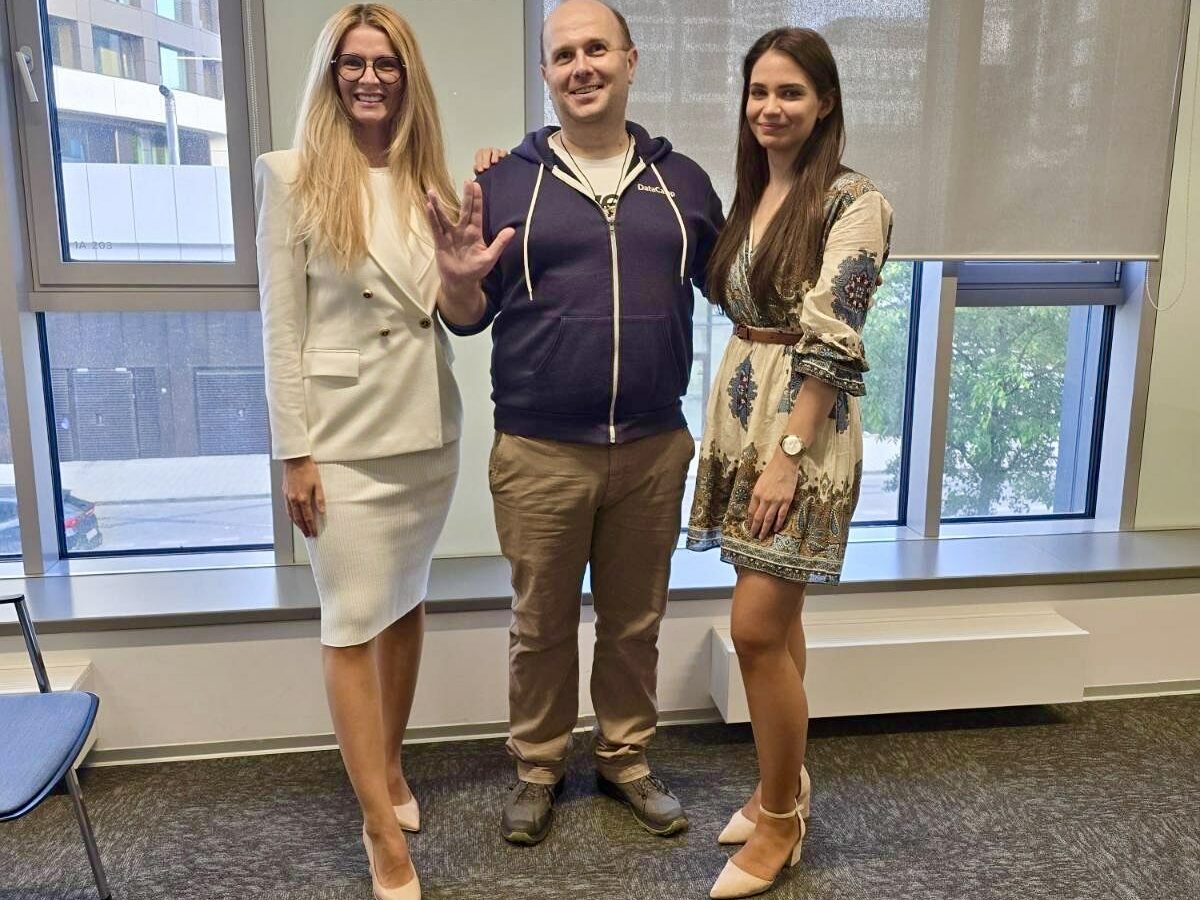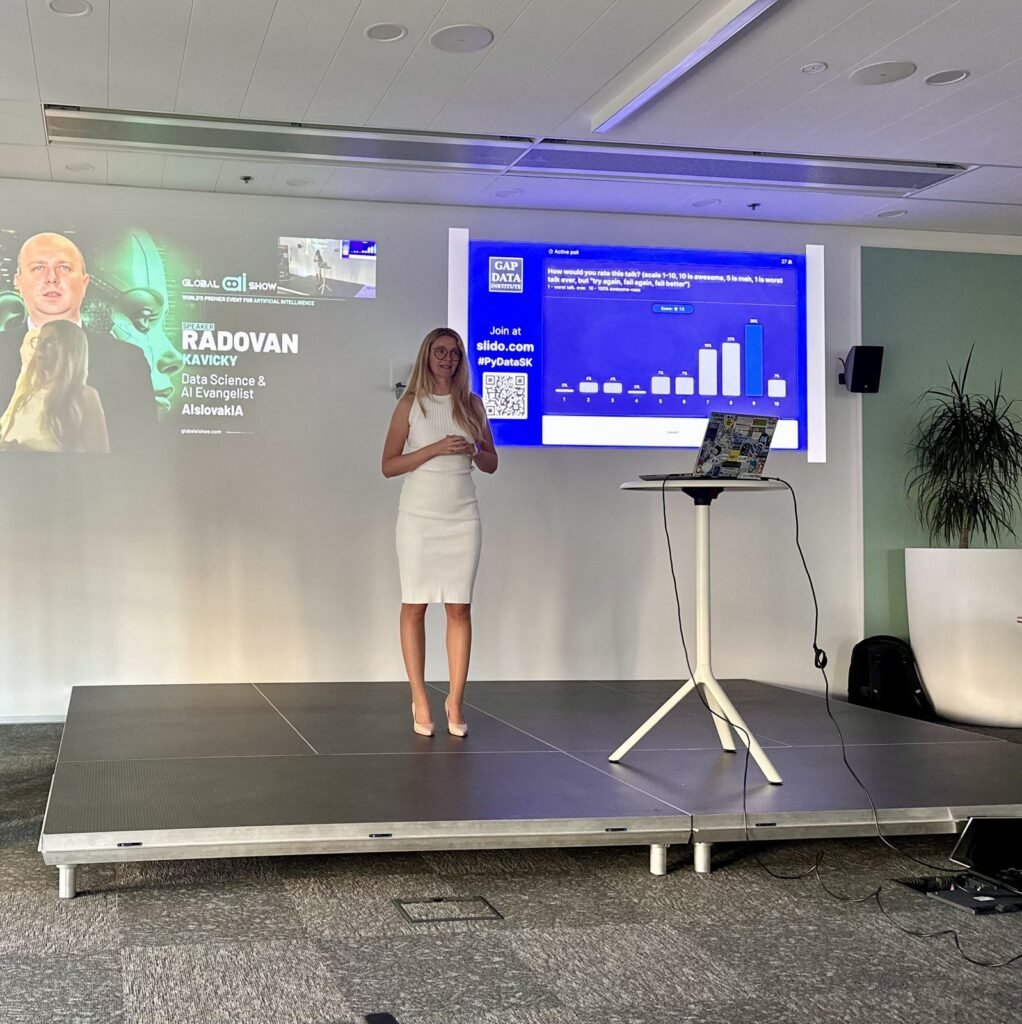HPC and Artificial Intelligence: Joining Forces for the Future of Technology
On Tuesday, May 14, 2025, we attended the PyData Slovakia & Bratislava Meetup #29, which took place in Bratislava. The gathering of the data and technology community focused on current trends in artificial intelligence, with an emphasis on understanding how large language models (LLMs) work—tools that increasingly influence various aspects of our lives, from communication and education to business operations and public administration. The keynote speaker of the evening was Radovan Kavický, President and Principal Data Scientist at the GapData Institute, who delivered an engaging talk titled “Under the Hood of LLM,” offering a compelling look into the inner workings of today’s advanced language models.
Participants gained deeper insights into the technical foundations of transformer architectures, including how these models process input data, generate responses, and why they are both powerful and computationally demanding. A particularly intriguing part of the presentation was the introduction of the Model Context Protocol (MCP), which offers a new approach to handling context and memory within LLM systems. MCP was compared with other methods such as Retrieval-Augmented Generation (RAG) and so-called Agent-to-Agent (A2A) protocols. These emerging methodologies highlight the direction in which LLM technologies are evolving and the potential they hold in the development of personalized chatbots, intelligent assistants, and autonomous AI agents.
Lucia Malíčková and Halyna Hyryavets represented the National Supercomputing Center (NSCC) at the event. During the meetup, Lucia Malíčková introduced the mission and activities of the NSCC, as well as the range of services the center provides to both the research community and academic institutions. She also presented the work of the National Competence Center for HPC, which supports Slovak businesses, researchers, and public institutions in transferring knowledge and innovation in the field of high-performance computing into practical use.
During the event, we also officially announced the beginning of a new collaboration aimed at connecting the artificial intelligence community with experts in high-performance computing. We believe this synergy will open up new opportunities for leveraging advanced AI technologies in areas that require significant computational power—such as training large models, running simulations, or processing complex datasets. We look forward to future joint activities and discussions that can help strengthen the link between technological infrastructure, applied research, and innovation.
The event took place in a friendly and open atmosphere, providing space for discussion, networking, and sharing experiences among participants from various fields — including data science, academia, technology companies, and startups. We would like to extend our sincere thanks to the organizers for their professional preparation and for giving us the opportunity to be part of a community that is eager to engage in conversations about the future of technology in an expert yet accessible way.
Our participation confirms that the topics of artificial intelligence and high-performance computing are becoming increasingly relevant—and increasingly interconnected—within Slovakia. We are pleased to have contributed to this important discussion and look forward to future opportunities to showcase the benefits and potential that HPC infrastructure offers for AI development and the digital transformation of society.


